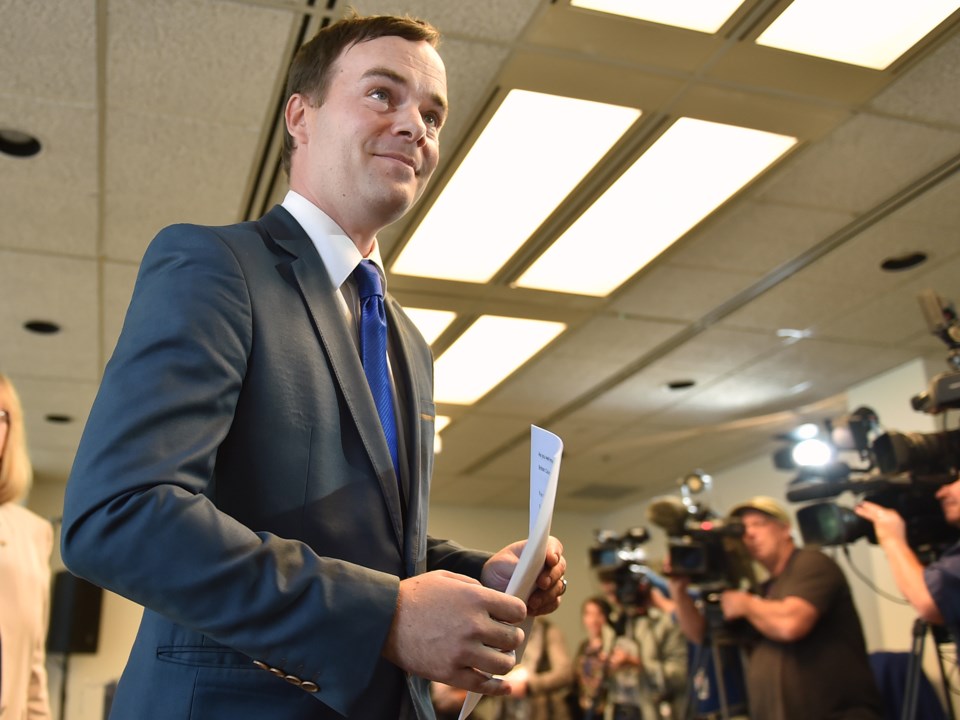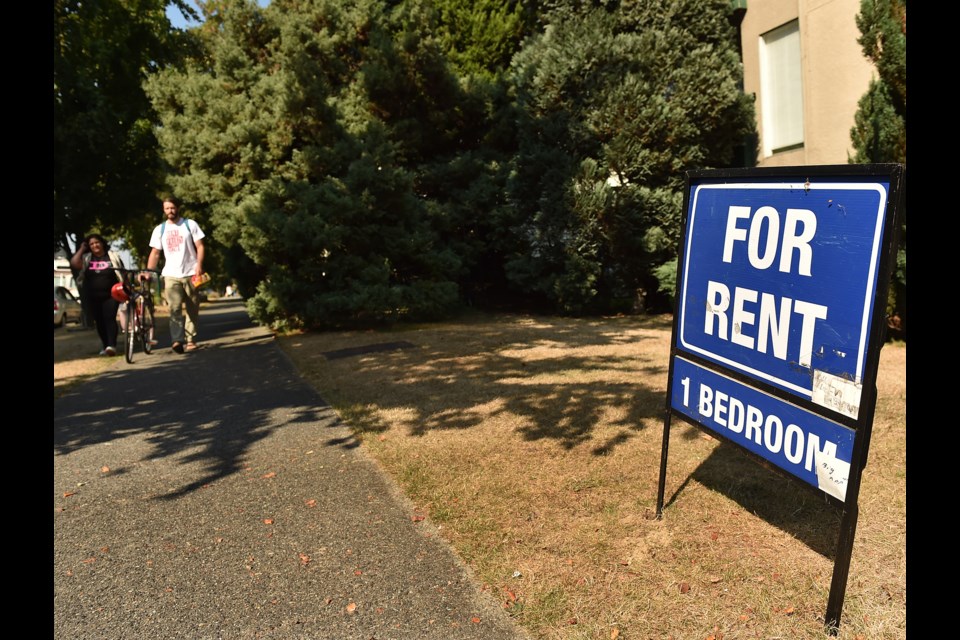B.C.’s rental housing task force is recommending the provincial government cut the 4.5 per cent allowable rent increase for next year to 2.5 per cent but still give landlords the ability to raise rents to cover maintenance and other costs.
The recommendation calls for the formula that led to the for 2019 be changed and instead tie the increase to the inflation rate only, making it 2.5 per cent for 2019. The current formula calculates the inflation rate, plus two per cent, and has been in place for 16 years.
“It’s a formula, which we’ve been told by renters, has been making life increasingly unaffordable for them as the cost of living, plus two per cent, keeps going above their ability to pay, as their wages have not kept pace,” said Spencer Chandra Herbert, the chairperson of the rental task force and NDP MLA for Vancouver-West End, at a news conference at the government’s downtown offices at Canada Place.
Chandra Herbert said he and the task force also heard from landlords who were concerned were not keeping pace with the costs to operate a suite or building. The recommendation to change the formula is based on models in Manitoba and Ontario.
The move by the rental housing task force comes three weeks after the provincial government announced that landlords could raise rent next year by a maximum of 4.5 per cent. It is now up to the provincial government to decide whether it will act on the task force’s recommendations before next year.
If the recommendations were to be implemented, landlords would have to apply for an additional increase on top of the 2.5 per cent. An increase would only be granted if a landlord can prove the new formula would not cover maintenance and other costs.
Asked what the maximum increase might be for a landlord, and whether a renter could effectively be facing a rent increase higher than the forecasted 4.5 per cent next year, Chandra Herbert did not provide a figure.
“What we’re recommending is that government work with landlords and tenants, look at the formula that they use in Ontario and Manitoba, and make a decision around whether there should be a cap, how much should the cap be, and for how many years,” he said.

LandlordBC issued a news release last week saying it was concerned the 4.5 per cent increase would be altered or rescinded. Even at 4.5 per cent, the association that represents 3,300 owners and managers said it would not be enough to cover costs landlords face in renting one or more suites.
The association conducted a recent analysis of the costs — including property taxes, insurance, repairs and maintenance — to operate a 1970s-era mid-sized building in Metro Vancouver. It found operating costs increased at the building 7.6 per cent per annum between 2009 and 2018, surpassing allowable rent increases.
David Hutniak, CEO of LandlordBC, said Monday a decrease in the allowable rent increase presents several problems, including the cost and hassle for a landlord to apply for an additional rent increase and the chill it would put on the development industry interested in building purpose-built rental buildings.
“I’m really nervous about that because we’ve been working really hard to get people to build it,” he said, noting landlords might also consider taking their suites off the market and place them on home sharing platforms such as Airbnb. “We can work within the context of the current rent control formula. We’ve had it for a while, we’ve adjusted to it, even though there’s issues to it — whatever, at least there’s a certain predictability to it that we’ve built in to our business models.”
Liam McClure, a steering committee member of the Â鶹´«Ã½Ó³»Tenants’ Union, said the task force’s recommendations are a step in the right direction. But, he said, the union doesn’t believe the task force has gone far enough and should adopt a temporary rent freeze like New York City did between 2015 and 2017.
McClure said rents have soared in Â鶹´«Ã½Ó³»in recent years and longtime renters have lost their places because of “renovictions,” where the landlord decides to renovate a suite or building and then charge the tenant a premium price.
McClure pointed to a report released in May by the B.C. Non-profit Housing Association that showed nearly half of renter households are spending more than the recommended 30 per cent of their income on housing while nearly one in five are spending more than 50 per cent on rent.
To Hutniak’s concern about operating costs, McClure said many landlords have made enormous profits from renters over the years.
“It’s not up to the government to assist landlords in running their business,” he said. “If a landlord doesn’t have a long-term capital plan to account for necessary maintenance, that’s sort of their problem. The tenants shouldn’t be bearing the burden of a landlord’s inability to manage their own enterprise.”
@Howellings



